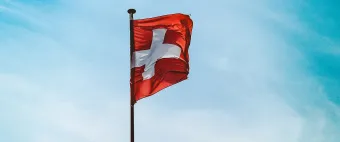Neutrality After the Russian Invasion of Ukraine: The Example of Switzerland and Some Lessons for Ukraine

Neutrality After the Russian Invasion of Ukraine: The Example of Switzerland and Some Lessons for Ukraine
In 1956, former American Secretary of State John Foster Dulles stated that “neutrality has increasingly become an obsolete conception.”1 Dulles’s statement seemed to be vindicated after the end of the Cold War as only a handful of countries in Europe identified themselves as neutral. Whereas in the past Belgium, Cyprus, Finland, Ireland, Luxembourg, Malta, the Netherlands, Portugal, Spain, and Sweden adopted neutrality, only two countries in Europe—Austria and Switzerland—are considered permanent neutral states under international law after the Cold War. Together with Sweden and Finland, Austria although maintaining a constitutional basis for its neutrality, became a non-allied state when it joined the European Union (EU) on January 1, 1995.
With Finland having just joined NATO and Sweden about to do so, these two countries are definitely leaving the camp of the neutral and non-allied European states. Thus, Switzerland remains the only permanent neutral state in Europe with no commitment towards the EU and its Common Foreign and Security Policy (CFSP), as the core substance of Austria’s “Neutrality Act equals the status of a non-allied country”2 since Vienna joined the EU. Considering the renewal of the discussion on the relevance of neutrality in European security following the Russian invasion of Ukraine, this article sheds light on the contemporary relevance of the concept. It will do so by first looking at the conceptual and strategic meaning of neutrality, then reviewing the evolution of Switzerland’s understanding and practice of neutrality, and finally recasting the relevance of neutrality, especially regarding Ukraine, in today’s geopolitical and geostrategic environment.
Ambassador Thomas Greminger served as Secretary General of the Organization for Security and Co-operation in Europe (OSCE) from July 2017 until July 2020. On May 1, 2021, he took over as Executive Director of the Geneva Centre for Security Policy (GCSP).As Secretary General, he acted as an effective crisis manager supporting successive Chairmanships in an increasingly polarized environment. In the final months of his term, he dealt with the COVID-19 crisis, working to protect the health and safety of staff while ensuring that the OSCE continued to carry out its critical mandates and maintained business continuity.
Dr. Jean-Marc Rickli is the Head of Global and Emerging Risks at the Geneva Centre for Security Policy (GCSP) in Geneva, Switzerland. He is also a research fellow at King’s College London and a non-resident fellow in modern warfare and security at TRENDS Research and Advisory in Abu Dhabi. He is a senior advisor for the AI (Artificial Intelligence) Initiative at the Future Society at Harvard Kennedy School and an expert on autonomous weapons systems for the United Nations in the framework of the Governmental Group of Experts on Lethal Autonomous Weapons Systems (LAWS). He is also a member of The IEEE Global Initiative on Ethics of Autonomous and Intelligent Systems and the co-chair of the NATO Partnership for Peace Consortium on Emerging Security Challenges Working Group.
Disclaimer: This publication was originally published on National Defense University Press website. The views, information and opinions expressed in this publication are the author’s/authors’ own and do not necessarily reflect those of the GCSP or the members of its Foundation Council. The GCSP is not responsible for the accuracy of the information
